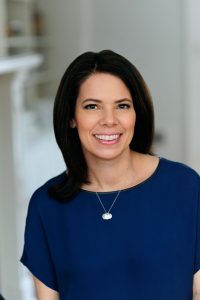
For those who don’t participate in organized religion, defining “grace” can be tricky.
“It’s what my book is really about,” said Katherine Ozment, a journalist and author of Grace Without God: The Search for Meaning, Purpose, and Belonging in a Secular Age, “how secular people can experience all the meaningful parts of religion, how they can try to capture some of that in their secular lives.”
Grace Without God began after Ozment’s son asked her, in reference to their family’s religion, “What are we?”
“I blurted out, ‘We’re nothing!’ because we weren’t practicing anything,” she said. “I realized that was a terrible thing to tell him, so I spent three years traveling around the country, interviewing everyone from atheists to Buddhists to Humanistic groups.”
At 2 p.m. Thursday, August 8 in the Hall of Philosophy, Ozment will present “Grace without God,” an interfaith lecture from a secular perspective. Her lecture is part of the Week Seven interfaith lecture series, “Grace: A Celebration of Extraordinary Gifts.”
“One of the great things about writing this book was that I typically didn’t confront questions like the one my son asked me head-on, because I didn’t have answers,” Ozment said. “I came to the conclusion that the question, ‘What are we?’ is a bit dated. We’re all so many things. There’s almost an error in the question because it assigns a label to yourself.”
At the end of Grace Without God, Ozment said she wrote a letter to her kids with “10 values I hope that they will take on.”
“It’s less a labelling of who you are or what you are, and more about, ‘What do you value?’ and, ‘How do you want to live your life?’ ” she said.
In addition to her book, Ozment also worked as a senior editor for National Geographic.
During her time at that publication, Ozment said she once rode a donkey through the deserts of Jordan and Israel for a story assignment.
“We were recreating the Copper Age,” she said. “There was this route from Jordan into Israel, and in order to tell the story, we decided to pretend we were Copper Age travelers and metal-smelters. We started in Jordan and camped the entire way. We were led by Bedouins on donkeys — although the donkeys weren’t very fast, so mostly we walked and the donkeys just walked along.”
Ozment and her companions carved ore in Jordan and carried it with them, later melting it down with the help of a metallurgist to try and approximate what it was like to practice metallurgy during the Copper Age.
“There’s a direct connection between (my time at National Geographic) and the conclusions I came to in my book, which is: I find meaning in the here and now,” she said. “One of the really important ways I do that is to be in nature.”
Whether her audience today is “religious or nonreligious people,” Ozment said she hopes they will come away with a deeper understanding of what it means to be religiously unaffiliated.
“I’ve actually come to think that the divide isn’t so much between the religious or nonreligious, but maybe between people who are seeking and people who are not seeking,” she said. “If we could come to see that there are ways to rethink our labels and ways we could rethink how we categorize each other, we would probably have more in common with a religious people than a nonreligious people.”




